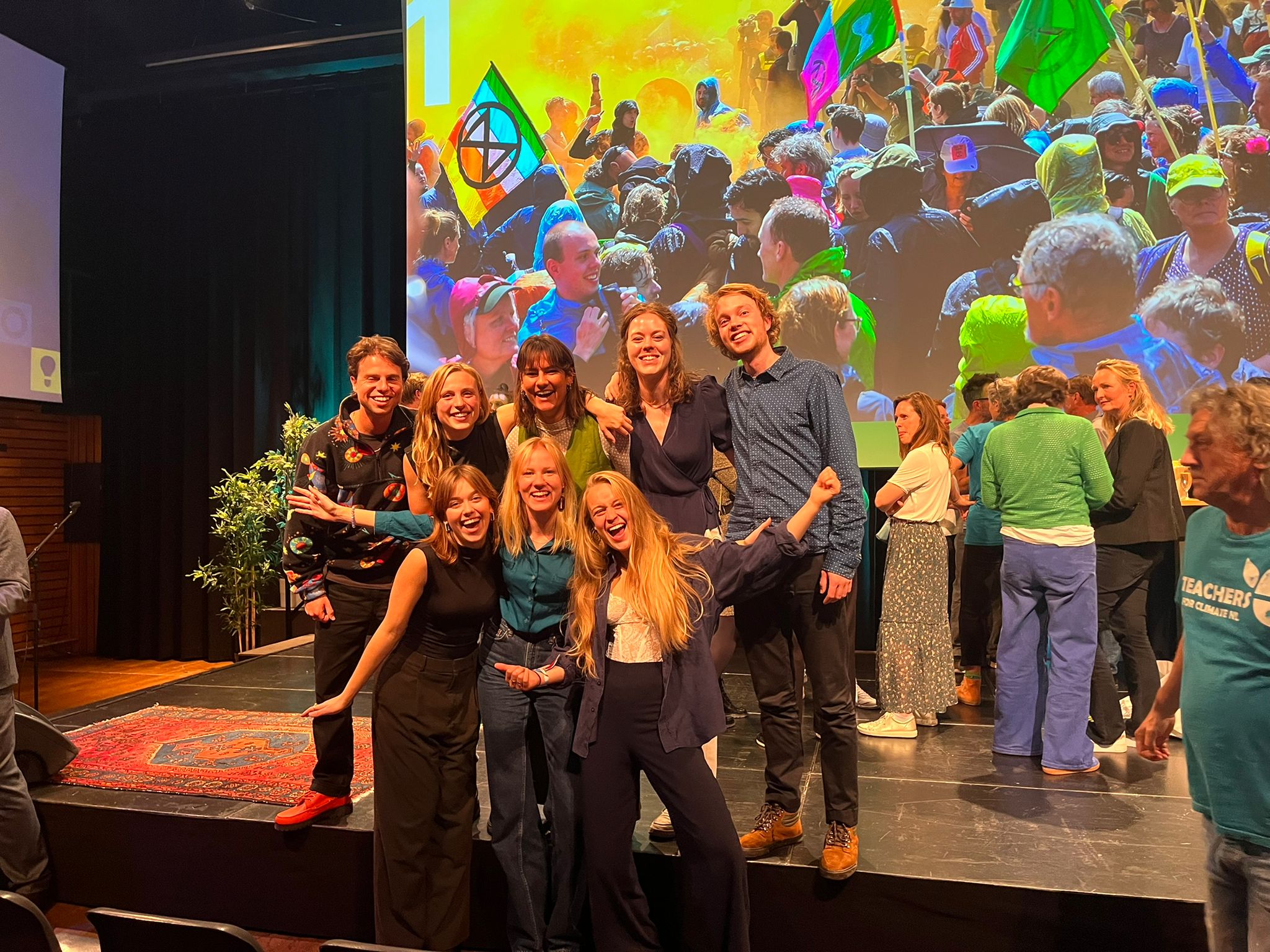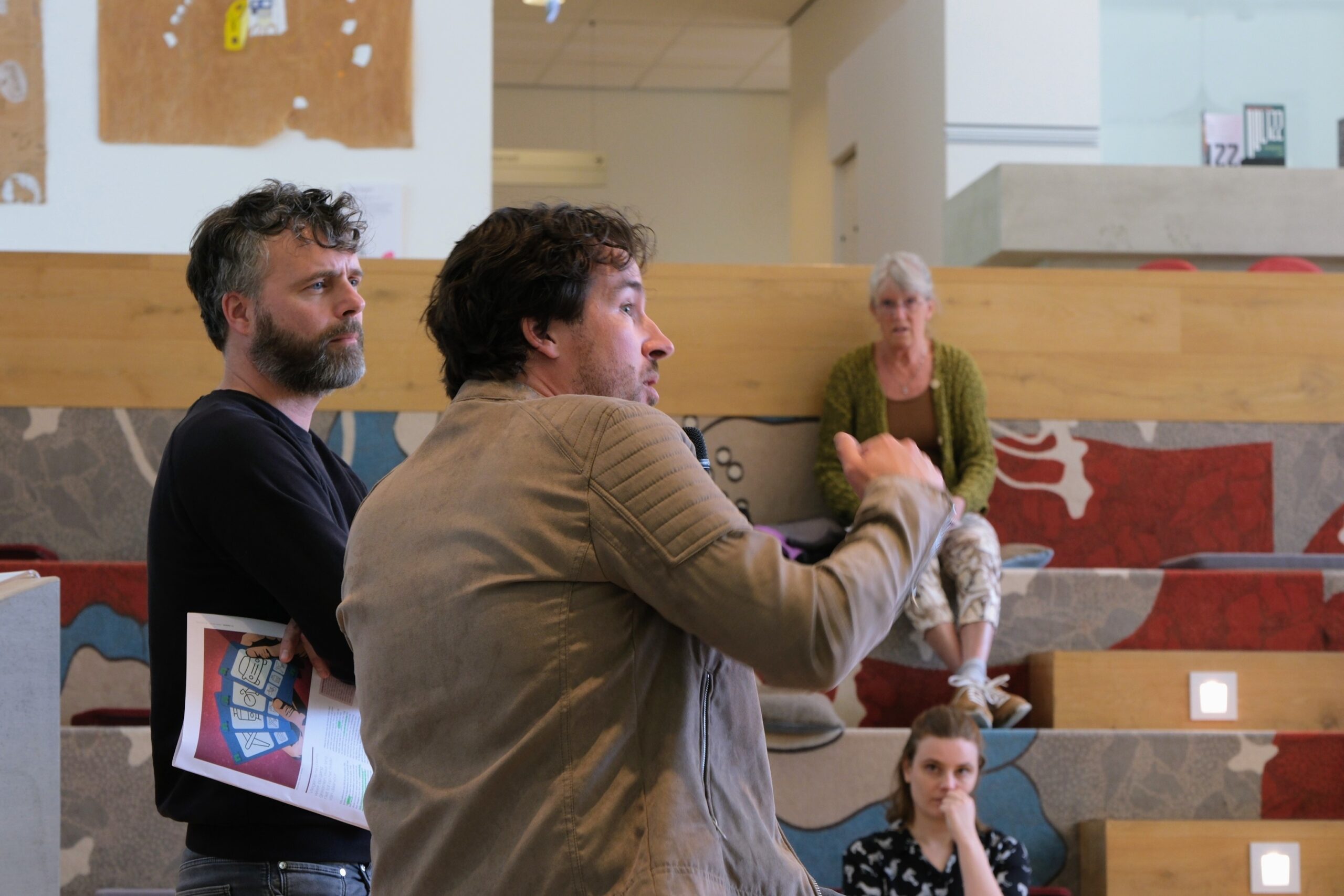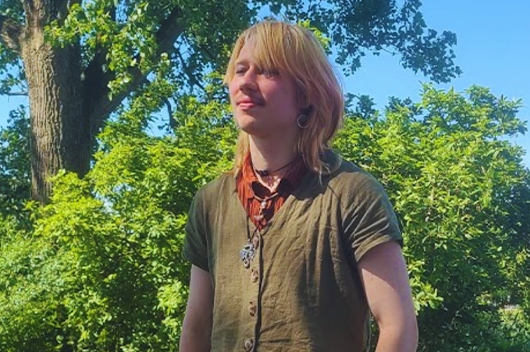Plantje Voor Morgen (‘plant for tomorrow’), the foundation WUR student Wiep Fokker chairs, has come 14th in the Sustainability 100, an annual ranking of sustainable civil society initiatives compiled by Dutch newspaper Trouw. Big campaign groups Extinction Rebellion and Scientists Rebellion top the list.
‘I put us in for the Sustainability 100 earlier this year, thinking it would get us a bit more publicity for our initiative’, says Wiep Fokker, Communication & Life Sciences Bachelor’s student and one of the founders of Plantje voor Morgen. ‘I would have been satisfied with 99th position and our name in the newspaper. We never expected to come 14th!’
Plantje voor Morgen was set up by four young women who know one another through the Young & Sustainable working group of the National Youth Council. ‘Three years ago, we were wondering whether prisons actually had plants. We wanted to do something about sustainability in a sector where that wasn’t really happening at all.’
Learning gardening
Which brought them to prisons. ‘The top priority in prisons is security, not sustainability.’ After talking to people in the prison sector, they discovered it was difficult to install plants because of the security rules, explains Fokker. ‘Pottery shards are sharp and therefore potentially dangerous, and you could hide drugs in the soil.’
‘We then continued our search for how you could do something with sustainability in prisons. In partnership with a prison in Zwolle, we developed and tested an educational programme.’ Plantje voor Morgen provides workshops on gardening and cooking sustainably. ‘In the workshops, we try to teach something about sustainability in an accessible way to people who don’t normally work in the garden, for example because they have other duties in their daily programme.’
Rehabilitation
Fokker and her colleagues are aware they are working with a group of vulnerable people. ‘We want our project to be effective for the target group and not just an interesting challenge for us. Eventually, prisoners are released back into society. Then they could be your neighbour or someone you bump into in the supermarket. We want them to be able to look after themselves, but also to look after the world around them.’
Plantje voor Morgen has now grown to a team of eight young people, five of whom are current or former WUR students. The organization eventually plans to help prisoners find jobs in a sustainability sector, but in the coming years it will focus on the workshops and extending them to other prisons. ‘I hope our 14th position in the Sustainability 100 will let us reach more people in the prison sector and achieve all our plans.’

 The Plantje voor Morgen team at the event to announce the top 25 in the Sustainability 100. Own photo.
The Plantje voor Morgen team at the event to announce the top 25 in the Sustainability 100. Own photo. 

